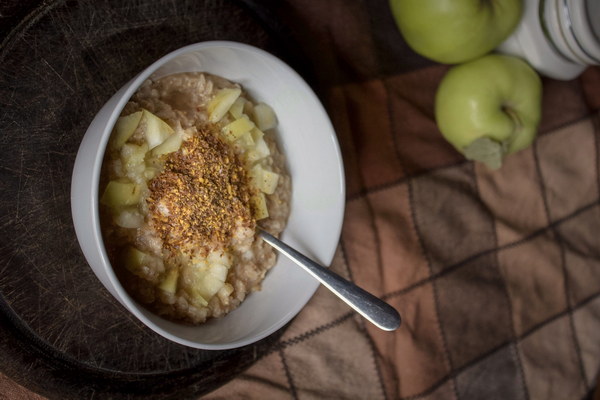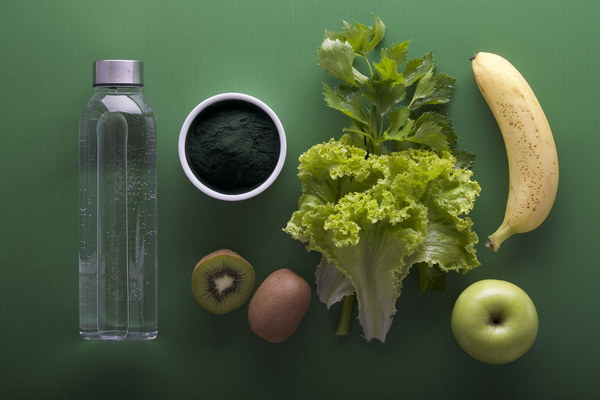Revitalizing Your Lungs A Traditional Chinese Medicine Approach to Lung Qi and Nourishment
In the realm of traditional Chinese medicine (TCM), the concept of lung qi and nourishment is fundamental to maintaining a healthy respiratory system. The lungs are considered the primary organ for taking in the oxygen we need and expelling carbon dioxide, making them crucial to our overall well-being. Here, we delve into the world of TCM and explore how you can boost your lung qi and nourish your lungs through diet, herbs, and lifestyle adjustments.

Understanding Lung Qi and Nourishment
In TCM, lung qi refers to the vital energy that sustains the respiratory function and protects the body against external pathogens. A healthy lung qi ensures that your body can effectively absorb oxygen and expel waste products, thus promoting good health. However, various factors such as stress, poor diet, and environmental pollution can weaken lung qi, leading to respiratory issues and other health problems.
Lung nourishment, on the other hand, focuses on providing the lungs with the essential nutrients and moisture needed to function optimally. By following a TCM approach, you can strengthen your lung qi and improve lung health.
Dietary Tips for Lung Qi and Nourishment
A balanced diet is a cornerstone of TCM lung health. The following tips can help you nourish your lungs:
1. Consume plenty of moistening foods: Foods rich in moisture help to moisten the respiratory tract, reducing dryness and irritation. Examples include soups, stews, fruits, and vegetables such as apples, pears, and cucumbers.
2. Incorporate lung-nourishing foods: Foods that are known to nourish the lungs include nuts (like almonds and walnuts), seeds (like sesame and sunflower), and root vegetables (like carrots and sweet potatoes).
3. Avoid lung-damaging foods: Foods that are considered to be lung-damaging in TCM include cold, raw, and spicy foods, as well as dairy products and alcohol.
4. Stay hydrated: Drinking plenty of water is essential for maintaining lung moisture and preventing respiratory issues.
Herbal Remedies for Lung Qi and Nourishment
Herbs can be a powerful tool in TCM for strengthening lung qi and nourishing the lungs. Some commonly used herbs include:
1. Astragalus (Astragalus membranaceus): This herb is known for its immune-boosting properties and its ability to enhance lung function.
2. Codonopsis (Codonopsis pilosula): Codonopsis is often used to nourish the lungs and boost energy levels.
3. Licorice root (Glycyrrhiza uralensis): Licorice root can help to moisten the lungs and reduce inflammation.
4. Eleuthero (Eleutherococcus senticosus): Also known as Siberian ginseng, eleuthero is believed to boost the immune system and improve lung function.
Lifestyle Adjustments for Lung Qi and Nourishment
In addition to diet and herbal remedies, adopting certain lifestyle habits can also contribute to lung health:
1. Practice deep breathing exercises: Deep breathing exercises can help to strengthen lung function and improve oxygen intake.
2. Engage in moderate exercise: Regular physical activity can enhance lung capacity and overall health.
3. Avoid smoking and secondhand smoke: Smoking is a leading cause of lung disease and can severely damage lung qi.
4. Minimize exposure to pollution: Try to avoid high-pollution environments and use air purifiers at home.
5. Manage stress: Stress can weaken lung qi, so it's essential to find ways to manage stress, such as through meditation, yoga, or other relaxation techniques.
In conclusion, following a TCM approach to lung qi and nourishment can significantly improve your respiratory health. By focusing on diet, herbal remedies, and lifestyle adjustments, you can bolster your lung qi and promote overall well-being. Remember to consult with a qualified TCM practitioner before starting any new treatment or herbal regimen.









